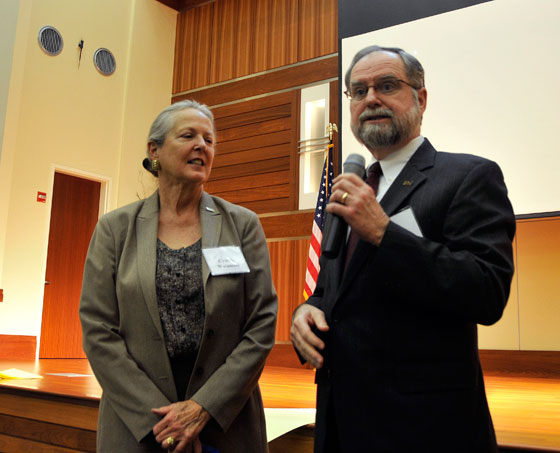By Paige Rohe, assistant director, Carter Center Communications Department
On a cold December afternoon in 2011, the picture of a smiling teenage girl illuminated the darkened Ivan Allen Pavilion at The Carter Center. Her name was Sarah Crider. More than five years ago, at the age of 14, Sarah died from a preventable complication during treatment at a state-run psychiatric hospital in Atlanta. Her story was one of several cases of patient neglect brought to light in a 2007 Atlanta Journal-Constitution exposé of Georgia’s crumbling mental health care system.
Since 2008, The Carter Center has helped mobilize the mental health and addictive diseases communities in the state, as well as other stakeholder groups to help identify solutions to Georgia’s behavioral health crisis. The goal is to prevent the systemic failures that allowed Sarah and other Georgians with serious mental illnesses to fall through the cracks—ending up in jails, on the streets, or lost forever. As part of this work, The Carter Center has published a report of recommendations (PDF) for areas not covered by the landmark 2010 federal settlement with the state—such as the children’s mental health care systems that served Sarah.
The Carter Center, in partnership with the Georgia Department of Behavioral Health and Developmental Disabilities and others, held three town hall meetings in late 2011 and early 2012 in different regions across the state to solicit feedback on the Center’s draft report on Georgia’s community behavioral health system: Nov. 3, 2011, in Cartersville; Dec. 16, 2011, in Atlanta; and Jan. 13, 2012, in Savannah.
Through a series of three town hall meetings held in different regions across the state, The Carter Center, in partnership with the Georgia Department of Behavioral Health and Developmental Disabilities (DBHDD) and others, have solicited feedback on the Center’s report and overall progress on Georgia’s implementation of the settlement agreement. The report will be finalized to include community feedback in the late spring.

Mental Heath America advocate and Georgian Cynthia Wainscott and Carter Center Mental Health Program Director Dr. Thom Bornemann lead a town hall meeting in Cartersville, Ga., on solutions to the state’s mental health care crisis. The event was the first of three regional meetings held by The Carter Center, state officials, and community stakeholders to generate support for improving public behavioral health systems. Photo: P. Rohe/The Carter Center
Carter Center Mental Health Program Director Dr. Thom Bornemann says the report and the town hall meetings have helped build public momentum toward a more solid foundation for Georgia’s mental health and addictive disease services.
Georgia is not the only state facing serious challenges providing for people with behavioral health challenges, but local experts say the state’s stakeholders are more committed than ever before to creating an evidence-based care system that can improve patient outcomes.
“The level of collaboration between the state and the mental health community means many more Georgians will have a chance to live healthier, more productive lives in their own communities,” says Dr. Bornemann.
As the more than 100 attendees at the Carter Center’s Atlanta regional town hall meeting soberly reflected on Sarah’s portrait, it was clear they understood the stakes are high.
“Working together, we can end this long era of tragedy for thousands of Georgia’s most vulnerable citizens and build a more hopeful future for all of us,” said Dr. Bornemann.
Read More:
Please sign up below for important news about the work of The Carter Center and special event invitations.